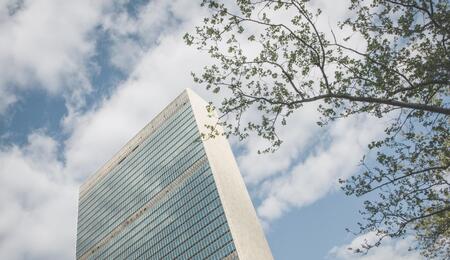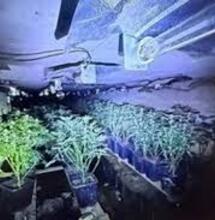The United Nations Removes Cannabis from List of Dangerous Drugs

The symbolic move may open up scientific research and ease access to the medicinal and recreative substance.
A United Nations commission voted on Wednesday (2 December) to remove cannabis from a list which categorised it as a dangerous substance. The move has been interpreted to highlight the medicinal values of the cannabis plant and has been hailed as a "historic victory" by advocates of cannabis. The former classification has effectively placed cannabis alongside dangerous substances such as heroin and opioids. The UN Commission on Narcotic Drugs, which has 53 member states and is based in Vienna, now stripped cannabis and cannabis resin from its 1961 Single Convention on Narcotic Drugs where the substance was listed as Schedule IV classification. Schedule IV substances are a subset of Schedule I drugs, meaning they have been labelled as "highly addictive", "highly liable for abuse", "harmful" and "of extremely limited medical or therapeutic value". A group of renowned drug policy organizations has welcomed the move, although it has also raised concerns that the reform fails to decategorize cannabis internationally where it remains in the company of substances such as heroin and cocaine. "This is a huge, historic victory for us, we couldn't hope for more," said Kenzi Riboulet-Zemouli, an independent researcher for drug policy who has closely monitored the vote and the position of member states, The New York Times reported. Riboulet-Zemouli said that cannabis had been used throughout history for medicinal purposes, and the Wednesday decision has reinstated such a status. “We welcome the long overdue recognition that cannabis is a medicine. However, this reform alone is far from adequate given that cannabis remains incorrectly scheduled at the international level," said Ann Fordham, Executive Director of the International Drug Policy Consortium, in a statement.
Global cannabis news from 2020 has further highlighted five U.S. states moving to legalize recreational and/or medical marijuana, but also a failed referendum in New Zealand to regulate the substance.
"The original decision to prohibit cannabis lacked scientific basis and was rooted in colonial prejudice and racism. It disregarded the rights and traditions of communities that have been growing and using cannabis for medicinal, therapeutic, religious, and cultural purposes for centuries and has led to millions being criminalized and incarcerated across the globe," Fordham said. "The review process has been a missed opportunity to correct the historical error," she said. The vote will have no immediate effect to ease off international controls as governments will still have the final say over how to classify cannabis, according to experts. Nevertheless, many countries look to global conventions for guidance, and United Nations recognition is a symbolic win for advocates of drug policy change who say that international law is out of date. In the United Kingdom, cannabis is classified as a 'Class B' drug in the company of amphetamines, codeine, ketamine, barbiturates and couple of other synthetic drugs. While possession and use of cannabis remain illegal on the street, recently, the Police Federation of England and Wales and the National Police Chiefs Council have backed a plan to implement a medical cannabis card. The card could be owned by those who suffer from conditions like cancer, depression and Multiple sclerosis. Owning the card will identify the patients as 'registered' medical cannabis patients. Medicinal cannabis was made legal in the UK in 2018, although cultivation has remained illegal. The United Kingdom is currently the world's largest exporter of medicinal grade cannabis.



